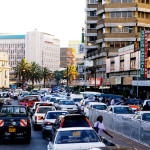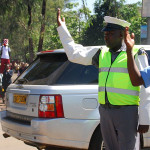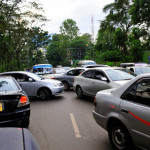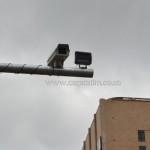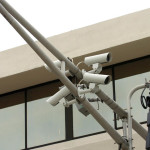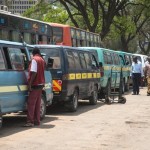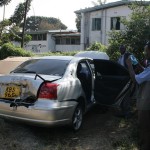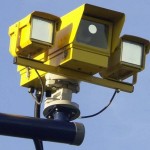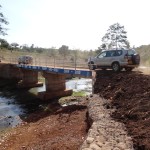The high number of road accidents on Nairobi roads could be a thing of the past following installation of CCTV cameras on major roads around the Kenyan capital. A spot check by Biztechafrica shows that traffic cameras within the Nairobi CBD are now operational.
This means that if drivers break any traffic laws (jump lights, make U-turns, wrong turns, overtake in restricted areas, enter through no entry areas or pick at the wrong points) their vehicle registration plate will be captured on camera and a warrant of arrest issued.
Better still, the cameras are never turned off (24/7) hence drivers should not be fooled by low traffic, early morning or late night hours, weekends, Sundays and public holidays. Since there will be a camera record of all these acts, a not guilty plea in court may not stand.
In November 2012, Kenya okayed a tender to install CCTV cameras in its capital city, Nairobi, to curb rising insecurity, especially from terrorists and to restore sanity on Kenyan roads. The East African country gave tender to install the surveillance to a state owned Chinese firm, Nanjing Les Information Technologies. The multimillion Integrated Urban Surveillance System (IUSS) project will also help monitor the Central Business District and its environs for security.
Once fully operational in all earmarked areas, the system will see 51 cameras located across the city to enable live streaming of video as well as record and store the video for review if need arises. According to the plan areas covered include: Kenyatta National Hospital, Country Bus Station, Muthurwa Market, Kirinyaga Road, Gikomba and Machakos.
The cameras are also positioned at the city’s Kencom House Bus stage, Ambassador Bus stage, Railways terminus, Tea Room, Odeon Cinema, KICC, Afya House, Macmillan Library, Gill House, City Market, GPO, Cross Road, OTC, and Nyayo House among other locations.
It is estimated that there are over two million cars on Nairobi’s roads with an additional 400 being added to the city’s congested roads daily. This congestion is attributed for the loss of upwards of sh50 million in productivity every day.
With the system now operational it is expected to come with trickle-down benefits including better road traffic enforcement, facilitation of various emergency response providers (ambulances, emergency rescue, fire fighting teams), and aid commercial solution providers such as vehicle tracking companies, logistics or security companies.
According to Johan Roux, a Security Solutions expert, for consumers using the roads, there may also be some additional benefits, as a national surveillance network may give travellers insight into traffic flow via real time video footage.
“Electronic notice boards on the highways will form another link in the system, making use of the information shared by these various organisations to advise motorists of traffic incidents or related events, says Roux.
Already there is a mobile phone service powered by AccessKenya and IBM that provides drivers with live updates on traffic jams and suggests alternative, less congested routes.

